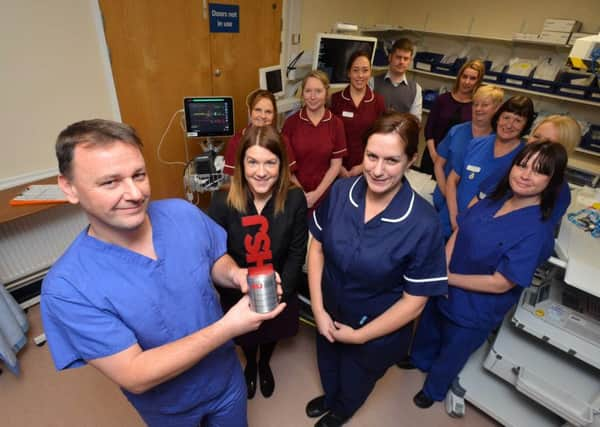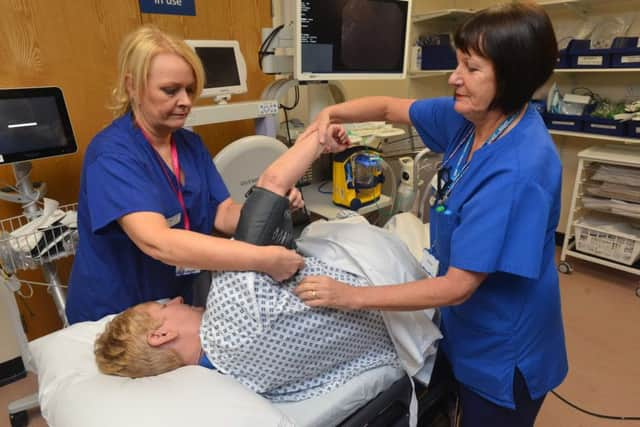South Tyneside District Hospital scoops Health Service Journal award for research


The gastroenterology team based at South Tyneside District Hospital won the Clinical Research Impact Award at the Health Service Journal Awards, presented at the O2 InterContinental London hotel by Great British Bake Off presenter Sue Perkins.
The development of South Tyneside as the most active bowel cancer screening research site in the UK and a key site internationally was one of the main achievements.


Advertisement
Hide AdAdvertisement
Hide AdProfessor Colin Rees, consultant gastroenterologist at the trust, who is also director of research and development, told the Gazette: “This a pretty big deal for the trust and it’s great to see that our research is making such a global impact.
“About 50 applications were submitted and only 11 shortlisted. When you consider Oxford and Cambridge were up for the award too, it’s fantastic that we, a smaller, district hospital, have won.
“As well as the staff and support from the hospital, we have to thank our patients too.”
About 5,000 patients, many of them from South Tyneside, have been used in research trials by the team.


Advertisement
Hide AdAdvertisement
Hide AdProf Rees also said that the benefits of winning the honour should have a knock-on effect on the trust and the borough.
“The importance of this should not be underestimated,” he said.
“It benefits patients, this organisation as well as the wider gastroenterology community and investment, retention and recruitment of staff here.
“We are also looking at research and development opportunities in other areas now, such as the respiratory department.”


Advertisement
Hide AdAdvertisement
Hide AdAdding his congratulations, Ken Bremner, chief executive of South Tyneside NHS Foundation Trust, said: “This accolade is thoroughly deserved.
“The team have transformed gastroenterology at South Tyneside District Hospital over the last 10 years by prioritising research.
“This has led to patients locally and more widely being given access to the very latest treatments and technologies and they are now recognised leaders in research regionally, nationally and internationally.”